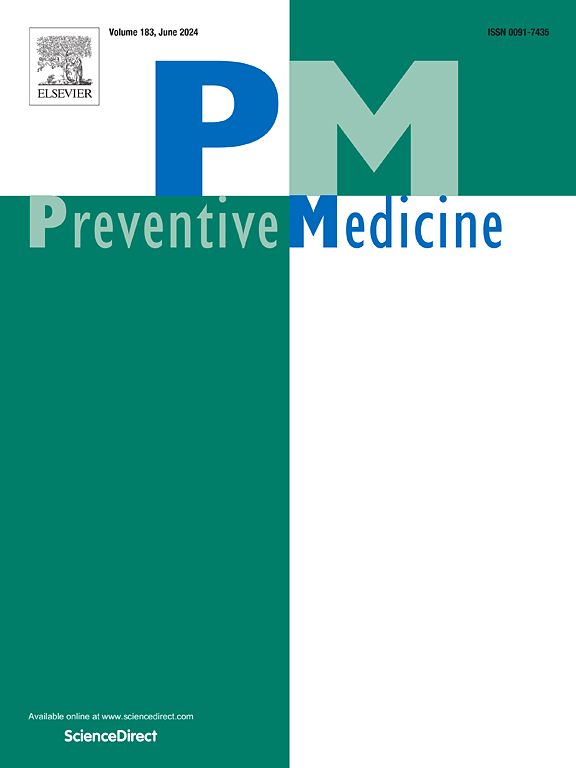Ethnic belonging and chronic disease in Indigenous populations in Canada
IF 3.2
2区 医学
Q1 MEDICINE, GENERAL & INTERNAL
引用次数: 0
Abstract
Objectives
Indigenous peoples in Canada endure health inequalities and cultural erosion due to colonial legacies. This study examines the relationship between ethnic belonging and chronic disease patterns among three Indigenous groups: First Nations, Inuit, and Métis.
Methods
We analyzed data from the 2017 Indigenous Peoples Survey of Canada, performing latent class analysis to identify distinct classes among 12 chronic disease indicators. We used multinomial logistic regression to examine the relationship between ethnic belonging and subtypes of chronic diseases, also employing average marginal effects to interpret heterogeneity. All analyses incorporated complex survey weights to ensure national representativeness.
Results
The final sample comprised 19,621 individuals. Four distinct subgroups were identified: Relatively Healthy, Physical Illness, Mental Illness, and Severe Illness groups. Descriptive statistics revealed that up to 35.0 % of the Indigenous population is in a suboptimal health state. Regression outcomes demonstrated that a strong sense of cultural belonging significantly reduces the odds of both Mental Illness (OR = 0.82, 95 % CI [0.76,0.88]) and Severe Illness (OR = 0.92, 95 % CI [0.84,0.99]). Heterogeneity analyses revealed that the positive association between belonging and health outcomes was stronger in the adult age group, among men, and within First Nations and Inuit groups.
Conclusion
This study underscores the critical role of ethnic belonging in enhancing health among Indigenous populations, particularly in reducing odds associated with mental and severe health conditions. Policies and community practices should focus on strengthening Indigenous peoples' community belonging and cultural connections.
加拿大土著居民的种族归属和慢性病。
目标:加拿大土著人民因殖民遗产而遭受保健不平等和文化侵蚀。本研究考察了三个土著群体:第一民族、因纽特人和姆萨梅蒂斯人的种族归属和慢性病模式之间的关系。方法:我们分析了2017年加拿大原住民调查的数据,进行潜在分类分析,以确定12种慢性病指标中的不同类别。我们使用多项逻辑回归来检验民族归属和慢性疾病亚型之间的关系,并使用平均边际效应来解释异质性。所有分析都纳入了复杂的调查权重,以确保全国代表性。结果:最终样本包括19621人。确定了四个不同的亚组:相对健康,身体疾病,精神疾病和严重疾病组。描述性统计显示,高达35.0% %的土著人口处于次优健康状态。回归结果显示,强烈的文化归属感显著降低了精神疾病(OR = 0.82,95 % CI[0.76,0.88])和严重疾病(OR = 0.92,95 % CI[0.84,0.99])的几率。异质性分析显示,在成年年龄组、男性以及第一民族和因纽特人群体中,归属感与健康结果之间的正相关关系更强。结论:本研究强调了族裔归属在增进土著人口健康方面的关键作用,特别是在减少与精神和严重健康状况相关的几率方面。政策和社区做法应侧重于加强土著人民的社区归属感和文化联系。
本文章由计算机程序翻译,如有差异,请以英文原文为准。
求助全文
约1分钟内获得全文
求助全文
来源期刊

Preventive medicine
医学-公共卫生、环境卫生与职业卫生
CiteScore
7.70
自引率
3.90%
发文量
0
审稿时长
42 days
期刊介绍:
Founded in 1972 by Ernst Wynder, Preventive Medicine is an international scholarly journal that provides prompt publication of original articles on the science and practice of disease prevention, health promotion, and public health policymaking. Preventive Medicine aims to reward innovation. It will favor insightful observational studies, thoughtful explorations of health data, unsuspected new angles for existing hypotheses, robust randomized controlled trials, and impartial systematic reviews. Preventive Medicine''s ultimate goal is to publish research that will have an impact on the work of practitioners of disease prevention and health promotion, as well as of related disciplines.
 求助内容:
求助内容: 应助结果提醒方式:
应助结果提醒方式:


